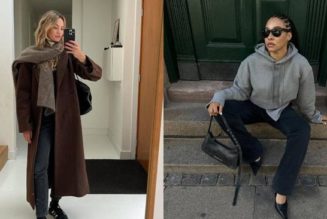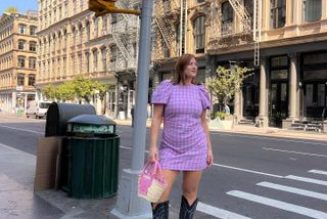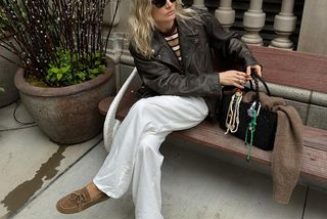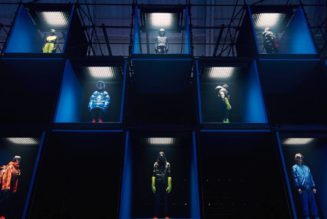PARIS — As Paris gears up for a busy couture week, French fashion’s governing body warned that the city’s logistics are becoming increasingly ungovernable, and the situation will likely worsen next year when the capital welcomes the Olympic and Paralympic Games.
“Paris is gridlocked,” Bruno Pavlovsky, president of the Fédération de la Haute Couture et de la Mode, said in an interview the day after the end of the men’s shows, which ran from June 20 to 25.
The official men’s spring 2024 calendar featured 43 shows and 38 presentations, coinciding with the presence of world leaders for the Summit for a New Global Financial Pact; the Paris Air Show; the annual Fête de la Musique street music festival; the Longines Paris Eiffel show jumping competition and the Garmin Triathlon — not to mention a heat wave and an explosion that destroyed the Paris American Academy school, mobilizing hundreds of emergency personnel.
To say that traffic chaos ensued is an understatement.
With 32 houses revealing their fall 2023 collections on the runway between Monday and July 6, the Paris Couture Week schedule will be one of the biggest yet. Thom Browne and Paris-based Ashi Studio are new to the calendar, while Charles de Vilmorin will return with his first runway outing.
In a joint interview with Pascal Morand, the federation’s executive president, Pavlovsky said while it was positive that its efforts to promote Paris as the capital of fashion are bearing fruit, organizing the shows has become very challenging.
“The momentum is extremely good, so that’s the encouraging part: it’s important to highlight the position of Paris, and all the work that’s been done here,” he continued, noting the return of big spenders of all nationalities.
“At the same time, the conditions for doing this are becoming increasingly difficult, not so much in terms of the shows, but the moments between shows, to ensure the smooth running of events and a minimum of serenity in terms of organization. It’s always a balancing act,” he added.
The federation must also deal with brands’ desire to secure ever more exclusive and spectacular locations. For example, luxury conglomerate LVMH Moët Hennessy Louis Vuitton shut down an entire neighborhood for Pharrell Williams’ debut menswear show for Louis Vuitton on the Pont Neuf.
There are roadworks all over the city as it gears up for the Olympics, and Paris Mayor Anne Hidalgo continues to lead one of the most ambitious policies worldwide to wean people off cars by restricting access to some streets, including the Rue de Rivoli, a major thoroughfare that is home to the LVMH-owned La Samaritaine department store.
This season presents an additional challenge: Valentino is unveiling its collection at the Château de Chantilly, located 30 miles north of Paris. The show at 7:30 p.m. on Wednesday is on the same evening as Louis Vuitton’s gala dinner for the launch of its new watch collection.
For the federation, the difficulty lies in giving brands the freedom to stage events in line with their strategies, while making sure that everyone has their moment in the sun.
“Brands are within their rights, and others have done it before, so this is not at all a criticism of Valentino,” said Pavlovsky, who is president of fashion and president of Chanel SAS. “But having a show in Chantilly really adds to the difficulty.”
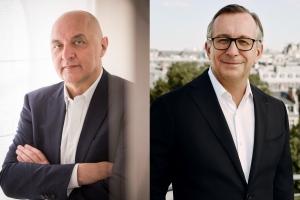
He warned that unless the situation improves, the Paris couture calendar may have to expand.
“Our challenge is to be able to welcome a maximum of shows for haute couture over four days. Perhaps one day we’ll have to go to five days,” he suggested. “We’re in a virtuous cycle and we must absolutely maintain that virtuous cycle.”
Morand noted that in recent seasons the federation has increased the time between slots on the calendar to up to one-and-a-half hours to allow guests to travel between locations and also attend presentations for high jewelry and other collections.
“It’s an ongoing dialogue with the brands, because the brands want to have freedom of movement, but we’re not there just to register their wishes,” he said.
“At the end of the day, it’s up to us to set the agenda. We determine the calendar, which doesn’t mean we don’t listen to brands. That’s why it works, despite the problems we’ve highlighted, and that’s why Paris is getting stronger,” Morand added.
The committee that selects the couture week participants is receiving a growing number of applications, he said. Browne came with a well-rounded pitch that took into account the complex rules that govern haute couture, the official designation for the activity of producing made-to-measure clothes.
De Vilmorin, by comparison, operates on a shoestring budget but also makes all his designs by hand, earning him a position among the guest members, who don’t have to respect the same stringent government-supervised rules as bigger houses.
Ashi Studio, meanwhile, is part of a wave of Saudi Arabian designers who are making their presence felt in Paris amid a host of regional design showcases and pop-ups.
In order to earn the haute couture designation, brands must employ a set number of people and present a minimum number of looks each season, among other criteria.
Morand said young designers value craftsmanship and personalization in an increasingly digital world, while Pavlovsky noted that haute couture acts as a magnet for designers from all over the world.
“It’s the pinnacle of the profession, so they strive to reach that. Some have the means, others don’t. It’s true that developing a haute couture collection remains expensive,” he said. “We try to support them and to adapt to their possibilities in order to keep them under this umbrella of haute couture.”
Although Paris has gone through yet another challenging period, with protests against the government’s pension reform that culminated in a garbage collectors’ strike, wealthy tourists from the U.S. and Asia are back, he reported.
“Since it’s still hard to get visas, the people who obtain them tend to be the most privileged,” Pavlovsky said, referring to Chinese tourists in particular. “It’s less mass tourism and more high-quality tourism.”
However, based on his experience at Chanel, he said couture clients still expect houses to travel to meet them where they are, a practice that grew during the pandemic.
Likewise, many jewelry houses — which traditionally present their main collections for the year in summer — have already staged presentations in glamorous locations, including Italy and Greece.
“The perspective of the Olympic Games, all the construction work, means that Paris is difficult to get around and does not always offer the best conditions to host these clients,” Pavlovsky noted.
As reported, the federation has moved forward the dates of the fall 2024 edition of Paris Couture Week to avoid a clash with preparations for the Olympic and Paralympic Games. Officials fear the disruption could last throughout summer and impact trading for luxury brands, and possibly hamper preparations for the spring 2025 womenswear shows in September 2024.
“The issue is access to stores, both for employees and for clients,” Pavlovsky said. “We already know that the center of Paris will probably be car-free and very hard to access. How will deliveries take place?”
The federation is coordinating its efforts with the Paris police, city hall, the Olympic and Paralympic Games Organizing Committee and the Interministerial Delegation for the 2024 Olympic and Paralympic Games.
“Today, we are in the dark, and we think we will remain in the dark until September or October,” Pavlovsky said.

